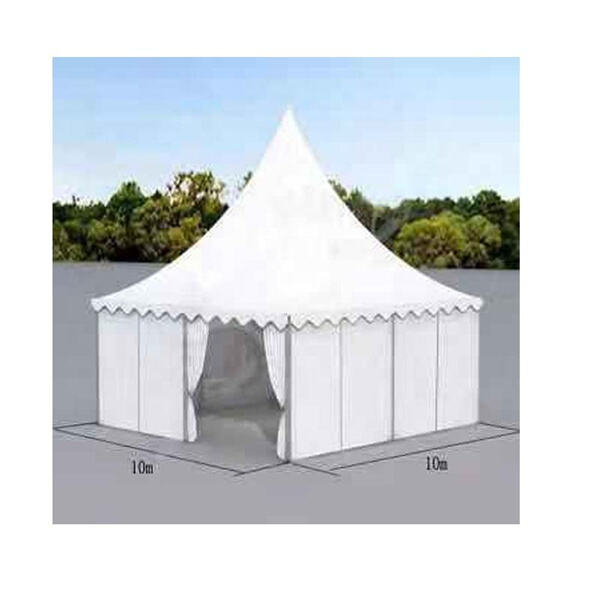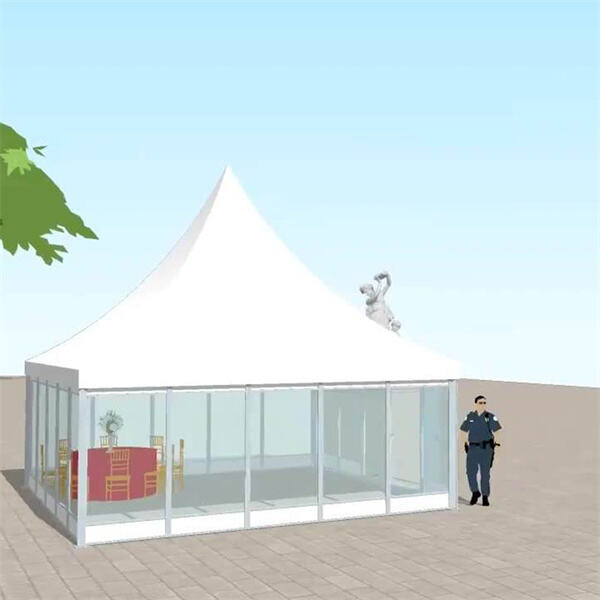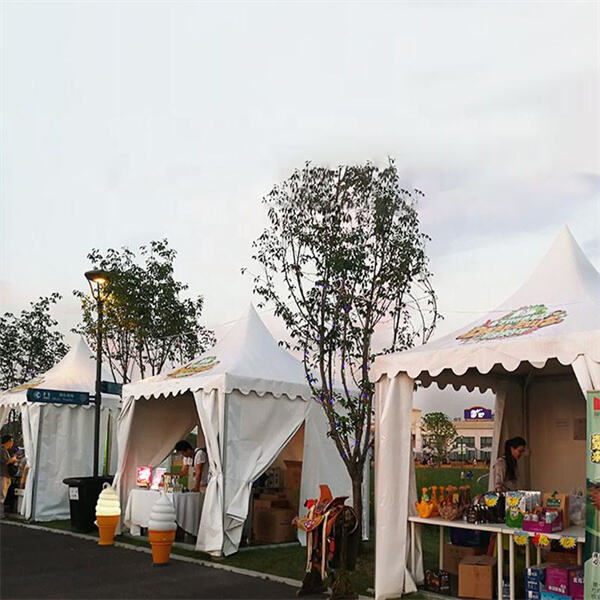Loading ...

Slyšeli jste někdy o a svatební stan? Stanová pagoda, zvláštní druh stavby, kterou můžete najít v některých částech Asie. Mají také velkou historii a význam, kromě toho, že jsou jedinečné svým tvarem a designem. V tomto článku prozkoumáme architekturu stanových pagod, jejich fascinující historii a význam jejich rolí podle přesvědčení jejich typu a zakladatelů.
Stanové pagody existují již dlouhou dobu a jsou významné v historii mnoha asijských zemí. Původní nomádské stanové pagody byly postaveny nomádskými národy, které nakonec migrovaly do stepí a pastvin střední Asie. Kmeny vyžadovaly vyhrazený prostor k uctívání a apelování na své příslušné bohy, a tak byly založeny stanové pagody. To jim propůjčilo způsoby, jak dosáhnout společenství s božskými silami a nabídlo jim posvátný prostor pro jejich obřady.
Pagoda stanu byla navržena tak, aby se v průběhu času neustále měnila a vyvíjela. Stala se velkolepou stavbou, velmi obdivovanou. Na svých cestách v předsjednocené Číně a dynastii Yuan průzkumník Marco Polo poznamenal, že desetiletá svatba byl používán v dynastii Yuan při jeho cestách. Řekl, že jsou „nejkrásnější a nejúžasnější“, což ilustruje, jak je jejich krása milovaná.
Stanové pagody se vyznačují zvláštním designem. Postaveno na kruhové základně kulaté osy. Stanová pagoda se špičatou střechou, která se svažuje nahoru, má tvar vysokého profilu, který lze rozpoznat již z dálky. Tyto dřevěné konstrukce jsou zahaleny do barevné látky, jako je plátno nebo hedvábí. Tato barevná látka upoutala pozornost stanové pagody a udělala ji krásnější.

Stanové pagody jsou také proslulé svými nádhernými dekoracemi. Tyto budovy mají také krásné malby, složité řezby a zvláštní nápisy na stěnách a střechách. Tyto dekorace ilustrují vyprávění o bozích a mnoha bozích, které přispívají k spiritualitě stanové pagody. Návštěvníci se mohou zdržet a ocenit tyto detaily a zároveň absorbovat bohaté kulturní dědictví, které ztělesňují.

Tyto stanové pagody nejsou jen hezké budovy; jsou také prodchnuty hlubokým duchovním významem pro mnohé. Používají je k uctívání a meditaci vyznavači buddhismu a taoismu. Charakteristický tvar pagody stanu prý symbolizuje misku, do které buddhističtí mniši sbírají jídlo při svých každodenních obchůzkách. Tato kulatá základna představuje Buddhovo učení, které nemá začátek ani konec. Spojení s spiritualitou dělá ze stanových pagod stále významnou roli v životě mnoha lidí.

Duchovní předměty, uvnitř pagody stanu Mohou to být sochy Buddhy, svíčky, kadidelnice atd. процессе поклонения для погружения людей в божественное. Pro mnoho návštěvníků je mír a klid ve stanové pagodě transformační.
Suzhou Yiqan Outdoor Equipment Co Ltd vybavená stanovou pagodou moderní strojní zařízení včetně evropských CNC strojů Americké zařízení pro svařování za tepla zajišťuje špičkovou efektivitu výroby kvalita produktu dodržuje přísná opatření kontroly kvality podle norem ISO9001
se silnou globální stopou Suzhou Yiqan Outdoor Equipment Co Ltd vyváží svou stanovou pagodu do regionů, které zahrnují Severní Ameriku, Jižní Ameriku, Evropu, Blízký východ, Afriku a Asii, zavázali jsme se k neustálému vylepšování produktů a maximální spokojenosti zákazníků
Suzhou Yiqan Outdoor Equipment Co., Ltd. poskytuje nejširší sortiment modulárních hliníkových stanů s jasnými rozpony, které se pohybují od 3 do 60 metrů, pro stanové pagody pro různé aplikace. Zaměřujeme se na neustálý pokrok a kvalitu a masivně investujeme do výzkumu a vývoje.
S více než 15 lety zkušeností je Suzhou Yiqan Outdoor Equipment Co., Ltd. průkopníkem v tomto odvětví. Jeho inovativní přístup, oddanost kvalitě a reputace v odvětví stanů jsou výsledkem způsobu provozu stanové pagody.
Copyright © Suzhou Yiqian Outdoor Equipment Co., Ltd. Všechna práva vyhrazena — Zásady Ochrany Soukromí - Blog